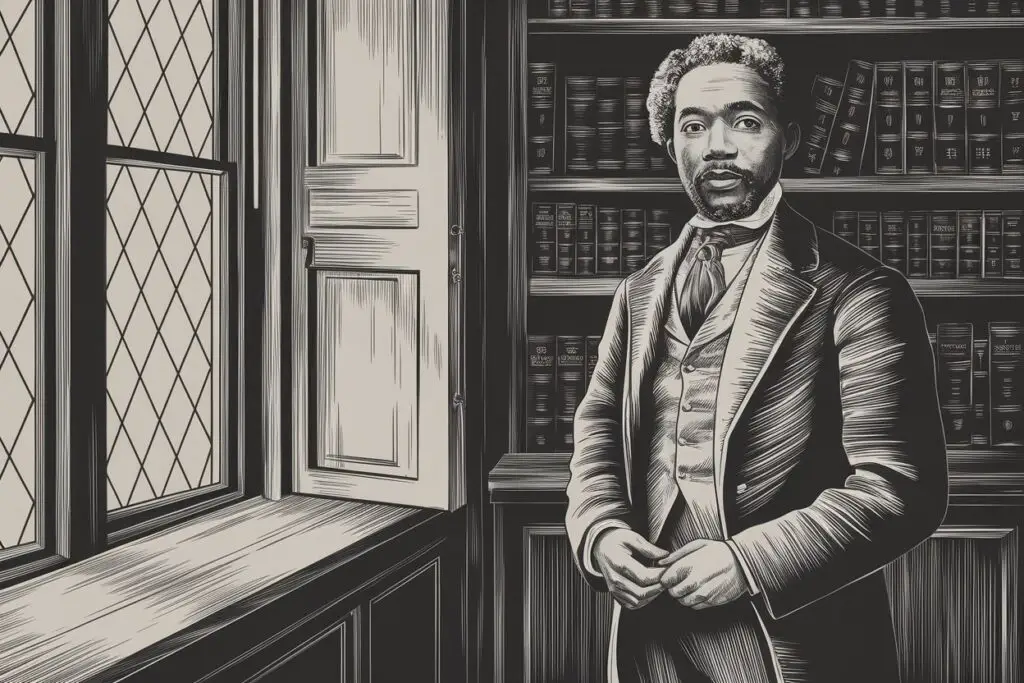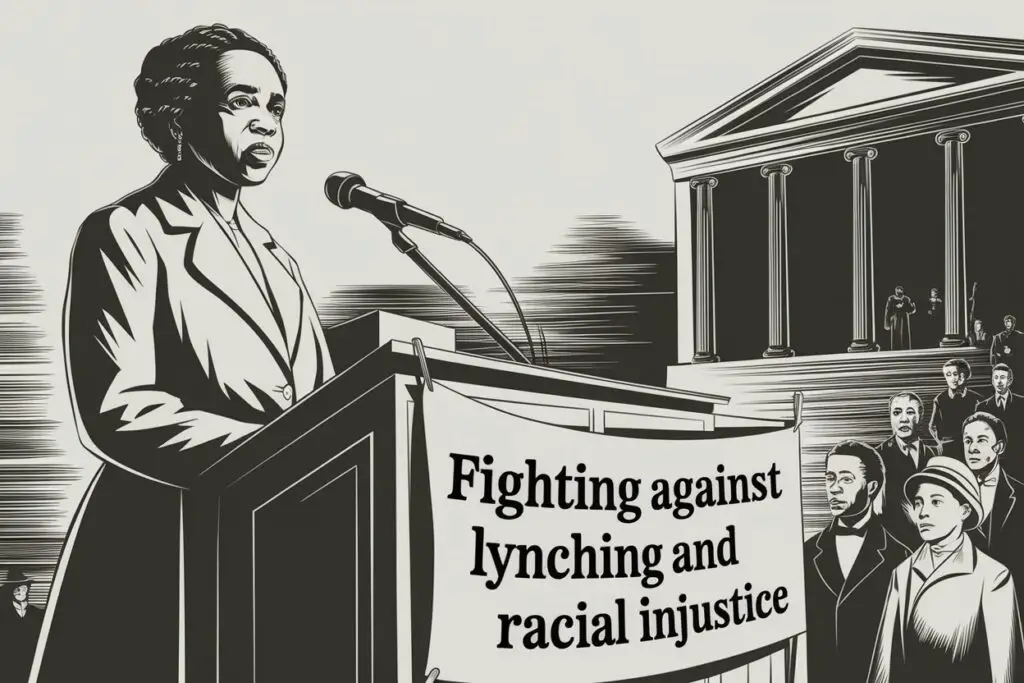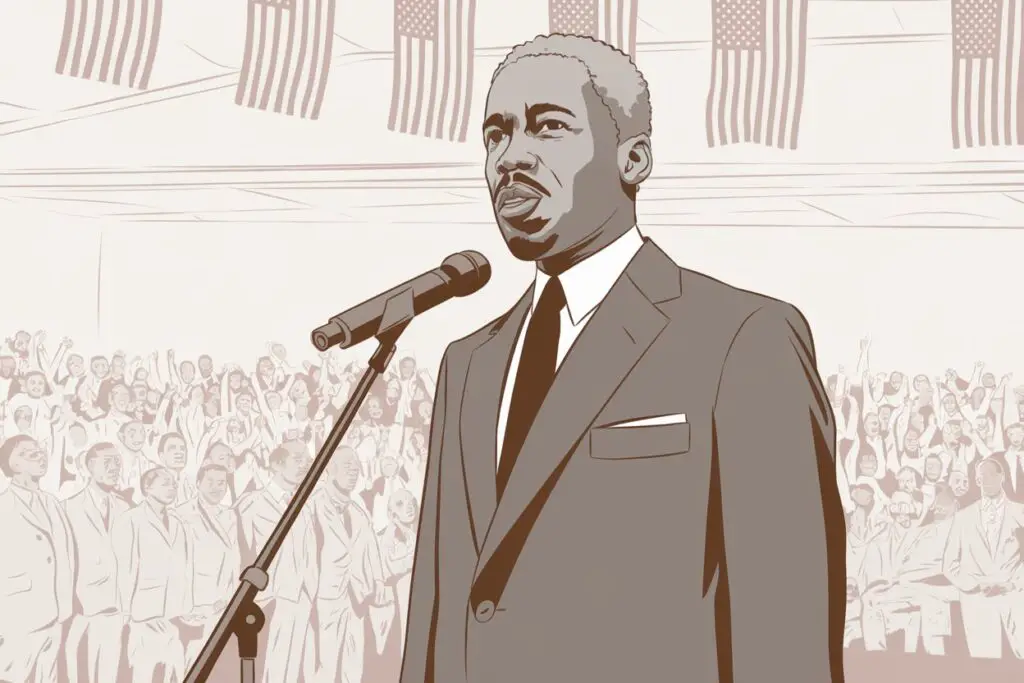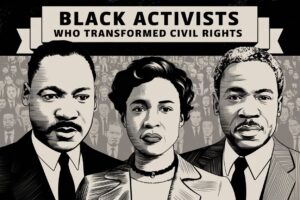1.Frederick Douglass—The Former Slave Who Became a Voice for Freedom
Frederick Douglass was not just an abolitionist—he was a force of nature. Born into slavery in Maryland around 1818, he endured the brutal realities of bondage before daring to escape in 1838. His journey to freedom was just the beginning. Douglass became one of the most powerful voices against slavery, using his intellect, oratory skills, and unshakable determination to challenge the institution that had oppressed him and millions of others. His autobiography, Narrative of the Life of Frederick Douglass, published in 1845, exposed the horrors of slavery to a wide audience, making him a target for pro-slavery advocates. But Douglass never backed down.

His activism extended beyond abolition. As a staunch advocate for women’s rights, Douglass attended the historic Seneca Falls Convention in 1848, where he was one of the few men to support women’s suffrage. He believed that the struggle for equality was universal. During the Civil War, he advised President Abraham Lincoln, pushing for the enlistment of Black soldiers in the Union Army. Later, he held several government positions, including U.S. Marshal for the District of Columbia and Minister to Haiti. Douglass’s legacy is one of resilience, intellect, and unwavering commitment to justice—an inspiration for generations of civil rights activists.
2.Harriet Tubman—Leading Hundreds to Freedom Through the Underground Railroad
Harriet Tubman’s name is synonymous with courage and resilience. Born into slavery around 1822 in Dorchester County, Maryland, Tubman endured brutal conditions, including severe physical abuse and a head injury that caused lifelong seizures and headaches. Yet, in 1849, she escaped to freedom, navigating the perilous Underground Railroad—a secret network of safe houses and abolitionists aiding enslaved people in their flight north. What made Tubman extraordinary wasn’t just her escape; it was that she returned—again and again—to lead others to freedom, earning her the nickname “Moses” for her unwavering determination.
Between 1850 and 1860, Tubman conducted approximately 13 rescue missions, freeing around 70 enslaved individuals, including family members. She used ingenious strategies, such as traveling at night and disguising herself, to avoid capture. Her work didn’t stop with the Underground Railroad. During the Civil War, Tubman served as a spy, scout, and nurse for the Union Army, playing a central role in the Combahee River Raid, which freed over 750 enslaved people in South Carolina. After the war, she continued her activism, advocating for women’s suffrage and establishing the Harriet Tubman Home for the Aged in Auburn, New York. Her legacy remains one of the most inspiring in American history—a demonstration of the power of resistance and the fight for justice.
3.Ida B. Wells—Fighting Against Lynching and Racial Injustice
Ida B. Wells was an investigative journalist, civil rights activist, and one of the most fearless voices against racial violence in the late 19th and early 20th centuries. Born into slavery on July 16, 1862, in Holly Springs, Mississippi, she was freed as an infant by the Emancipation Proclamation. However, the racial injustices she witnessed and endured in the post-Reconstruction South fueled her lifelong commitment to fighting oppression.
Wells gained national prominence in the 1890s when she began documenting and exposing the horrors of lynching, a brutal tool of racial terror used to suppress Black communities. As the co-owner and editor of The Memphis Free Speech and Headlight, she published pioneering investigative reports that disproved the prevailing myth that lynchings were carried out to punish crimes. Instead, she revealed that many Black men were lynched for economic success, political activism, or simply for defying white supremacy. Her work was so powerful that a white mob destroyed her newspaper’s office, forcing her to flee Memphis for safety.

Despite threats to her life, Wells carried her anti-lynching campaign to a national and international stage. She published Southern Horrors: Lynch Law in All Its Phases (1892) and The Red Record (1895), precisely detailing the scale and motivations behind lynchings in America. She toured the U.S. and Europe, delivering lectures that exposed these atrocities to the world. Her activism extended beyond journalism—she was a co-founder of the NAACP and played a substantial role in the women’s suffrage movement, advocating for Black women’s right to vote even when white suffragists tried to exclude them.
Wells’ legacy is one of unwavering courage and persistent pursuit of justice. She challenged both racism and sexism, paving the way for future generations of activists. Today, her work is widely recognized as a foundational influence in the fight for civil rights and social justice.
4.Martin Luther King Jr.
Martin Luther King Jr. was more than a civil rights leader—he was the voice of a movement that reshaped America’s moral and legal landscape. His journey began with the Montgomery Bus Boycott in 1955, a 381-day protest ignited by Rosa Parks’ arrest. King’s leadership in this campaign not only ended segregation on public buses but also introduced him as a national figure advocating for nonviolent resistance. Inspired by Mahatma Gandhi, King firmly believed that peaceful protest could dismantle institutional racism without resorting to violence.
By 1963, King had become the face of the Civil Rights Movement, leading the Birmingham Campaign, where he was jailed for defying segregation laws. From his cell, he penned the famous Letter from Birmingham Jail, articulating the urgency of civil rights reform. That same year, he helped organize the March on Washington, where he delivered his iconic I Have a Dream speech before 250,000 people. His words—calling for racial harmony and justice—became one of the defining moments in American history.
King’s activism led to legislative victories, including the Civil Rights Act of 1964, which outlawed segregation, and the Voting Rights Act of 1965, which protected African Americans’ right to vote. His efforts earned him the Nobel Peace Prize in 1964, making him the youngest recipient at the time. Tragically, King’s life was cut short when he was assassinated in 1968, but his legacy endures. His vision of equality continues to inspire social justice movements worldwide, proving that nonviolent resistance remains one of the most powerful tools for change.
5.Malcolm X—The Radical Voice for Black Empowerment and Justice
Malcolm X remains one of the most dynamic and controversial figures of the Civil Rights Movement. Born Malcolm Little on May 19, 1925, in Omaha, Nebraska, his early life was shaped by racial violence and systemic domination. His father, a supporter of Black nationalist Marcus Garvey, was killed under suspicious circumstances, and his mother was later institutionalized, leaving Malcolm and his siblings to navigate the foster care system. These formative experiences fueled his later rejection of white supremacy and his staunch advocacy for Black self-determination.

While serving a prison sentence for burglary in the late 1940s, Malcolm was introduced to the Nation of Islam (NOI). He adopted the surname “X” to symbolize the loss of his African heritage and quickly became the movement’s most electrifying spokesperson. By 1960, under his leadership, the NOI’s membership skyrocketed from 400 to 40,000. Unlike Martin Luther King Jr., who championed nonviolent resistance, Malcolm X promoted Black nationalism, self-defense, and economic independence. His speeches were uncompromising in their critique of racial inequality, repeatedly condemning white America for its historical injustices.
However, Malcolm’s ideology evolved considerably after his 1964 pilgrimage to Mecca. Witnessing Muslims of all races worshiping together led him to reassess his views on racial separatism. He soon broke from the Nation of Islam and founded the Organization of Afro-American Unity, advocating for a more inclusive approach to Black liberation. His shift toward Pan-Africanism and cooperation with other civil rights leaders broadened his influence but also made him a target. On February 21, 1965, Malcolm X was assassinated in New York City, leaving behind a legacy that continues to inspire movements for racial justice worldwide.







